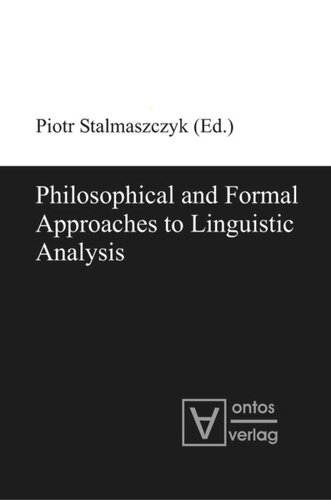

Most ebook files are in PDF format, so you can easily read them using various software such as Foxit Reader or directly on the Google Chrome browser.
Some ebook files are released by publishers in other formats such as .awz, .mobi, .epub, .fb2, etc. You may need to install specific software to read these formats on mobile/PC, such as Calibre.
Please read the tutorial at this link: https://ebookbell.com/faq
We offer FREE conversion to the popular formats you request; however, this may take some time. Therefore, right after payment, please email us, and we will try to provide the service as quickly as possible.
For some exceptional file formats or broken links (if any), please refrain from opening any disputes. Instead, email us first, and we will try to assist within a maximum of 6 hours.
EbookBell Team

5.0
28 reviewsArticles gathered in the volume focus on traditional and contemporary debates within the philosophy of language, and on the interfaces between linguistics, philosophy, and logic. The topics of individual contributions cover such diverse issues as analytic accounts of the a priori and implicit definitions, medieval and contemporary theories of fallacy, game-theoretical semantics, modal games in natural language and literary semantics, possible-world theories and paradoxes involving structured propositions, extensions to Dynamic Syntax, semantics of proper names, judgement-dependence, tacit knowledge and linguistic understanding, ontology in semantics, implicit knowledge and theory of meaning, and many more. The multitude of topics shows that the convergence of linguistic, philosophical, formal, and cognitive approaches opens new research perspectives within contemporary philosophy of language and linguistics.
The volume includes contributions by (among other authors): Luis Fernández Moreno (Madrid), Chris Fox (Essex), Ruth Kempson (London), Alexander Miller (Birmingham), Arthur Sullivan (Newfoundland), Mieszko Talasiewicz (Warsaw).